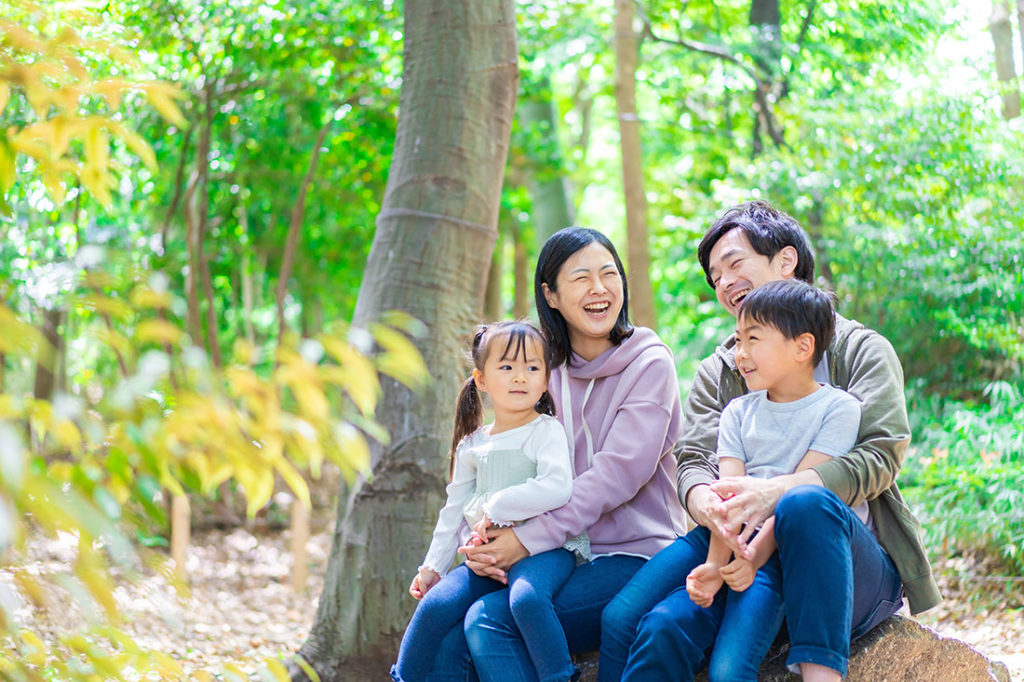Life isn’t easy, but over thousands of years of human civilization, people across the world have developed philosophies and strategies to cope with the stressful times and to navigate the trials of daily life.
Although most countries can boast a big-name philosopher or literary figure to turn to when a bit of life wisdom is needed, some of the most intuitive and effective daily happiness rituals have emerged from the cultures and people themselves.
This inspiring series of illustrations makes for a useful introduction to the wide world of little pleasures:
Japan: ‘shinrin-yoku’

A relatively new tradition, shinrin-yoku was developed in the 1980s as a simple way to counter the stresses of urban living in our concrete and digital metropolises. Otherwise known as forest bathing, it is all about getting out into nature. It can boost your immune system, reduce stress and improve your mood.
Hawaii: ‘ho‘oponopono’

It might sound like a curious and amusing mantra, but ho‘oponopono is about making changes on the inside—and reflecting them in your interactions with others. It is based on the observation that harboring resentment toward others mostly harms ourselves. Instead, it’s wiser to take a deep breath and figure out your own feelings before discussing them with someone you feel has done you wrong.
Norway: ‘friluftsliv’

Norway is a huge country with a tiny population, so it’s no wonder they like to get out and about. If the cities seem uninspiring, making it out into the lakes and mountains, to the northern lights and the perma-snow, can give you a hint of why Norwegians are so proud of their country. You can find a piece of ‘friluftsliv’ in your own country by finding an area of natural land and reconnecting with the earth.
Germany: ‘gemütlichkeit’

Even the most antisocial among us needs a little company from time to time, and healthier relationships make for a happier outlook. Yet it’s all too easy to take our everyday friends and family for granted. Gemütlichkeit is the particular German philosophy of celebrating each other’s company with a song, a dance, a beer or just a sense of heartfelt gratitude and fraternity.
Spain: ‘siesta’

Sadly, our productivity-oriented modern world has made the famous Spanish afternoon nap an endangered species. Yet, wherever you are in the world, making time for a 20-minute nap after lunch can mean rebooting your mind, which will not only cheer you up but also make you productive, if that’s what you’re concerned about.
France: ‘apéritif’

With our constantly switched-on mindsets and communication tools, it’s all too easy to slip from breakfast to work and back home again without ever taking a moment to take stock or mark the progress of the day. The French evening drink is a perfect ritual to slow things down and announce the transition from work to relaxation mode; and it warms up your belly ahead of the evening meal, too.
Argentina, Uruguay, Paraguay, Brazil: ‘mate’

Yerba tea has been credited with a whole lot of health and soul benefits over the years, but perhaps its key ingredient is the social element. Like banya or gemütlichkeit, it is best taken with friends.
Turkey: ‘keyif’

If your social needs are well-met, your family knows they’re appreciated and you’ve taken tea with your friends, maybe what you need next is some alone time. Keyif can take a moment or an hour, and it’s all about finding your own corner to relax and be mindful, recalibrating your internal clock before you head back to the hustle and bustle of the world.
Bosnia and Herzegovina: ‘kafa’

There’s nothing quite like a Bosnian coffee to slow the world to a palatable pace. Carefully but simply cooked in a ‘džezva’ pot and enjoyed with a sugar cube or a ‘rahat lokum’ candy, kafa is the polar opposite of ‘eating a coffee for lunch.’ Instead, it’s an extended moment in which to set the world to rights with your friends or colleagues and to try to remember what’s important in life.
Nigeria: ‘ubuntu’

Maybe there’s a theme here, but ubuntu—like so many other folk philosophies—is all about the power of togetherness. In this case, rather than a way of socializing, it’s about prioritizing the community above the needs of the individual. We find our humanity not in ourselves or from religion, but in our collective responsibility, mutual respect and love.
This article was published in September 2017 and has been updated. Photo by maroke



